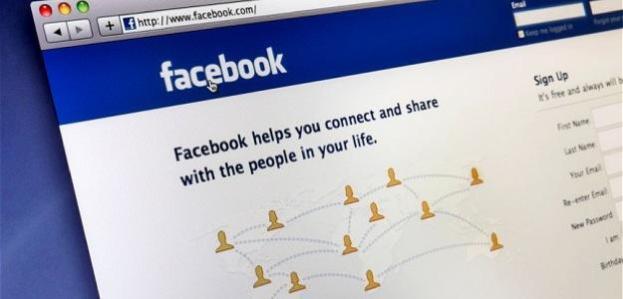
Sometimes we want to delete our Facebook history – maybe just pieces of it, or maybe everything. Perhaps you just want to start fresh, or you’re simply distrusting of Facebook with your information and want to get rid of old posts.
You’d hope that by clicking delete, your content is permanently removed. Apparently, that’s not quite the case. New evidence suggests that Facebook might not really be deleting the posts you think you’re getting rid of. In fact, sometimes these deleted Facebook posts are reappearing.

A few users have discovered just how persistent Facebook has been. Laura (who withheld her last name) deleted her Facebook posts “one-by-one” in February 2012, fearful of the repercussions that Facebook’s new Timeline (at the time) might bring. In October of that year, she logged into Facebook to discover that all of her Timeline content had been restored.

It’s not unreasonable to assume that this issue was a bug, but after the second time around when Laura had once again painstakingly deleted all her content, she grew more suspicious. “I deleted all my posts, likes and comments. I also deleted all my photos and albums except two profile photos,” Laura explains, telling us that her profile was clean with the exception of two photographs and a few basic personal details from the About section. Returning to her Facebook account months later, she discovered this month that her deleted posts popped up once again.
Scarier yet is the fact that this isn’t an isolate incident. There are other Facebook users who have encountered the very same scenario, with their deleted posts coming back to them. Also, there was an incident in which old posts were resurrected to the top of your profile as well. A lawsuit was filed against Facebook in Ireland in 2011 for this exact issue:
“About half a year to a year ago I decided that I wanted to delete as much of my personal data as possible on my facebook page. I used an automatic routine that automatically clicked on all “X”-buttons (labeled “remove post”) on my Facebook page. The following prompt clearly states that the content gets “deleted” (see attachment 03). After the routine was running for a while, all content was gone. From this point on I was continuously deleting all new content manually. In two or three cases old content kept coming back to my wall after I deleted it weeks earlier.”
Facebook’s Terms and Conditions shed some light on why its users are experiencing restored content:
“When you delete IP content, it is deleted in a manner similar to emptying the recycle bin on a computer,” the Terms and Conditions page states. “However, you understand that removed content may persist in backup copies for a reasonable period of time (but will not be available to others).”
Even Facebook admits that your content is actually still there even if you’ve technically deleted it. However the content popping up for a second time for a third round of deleting is unexpected.
We reached out to Facebook about the issue, whose representative only pointed out Facebook’s Terms and Conditions page, and highlighted the fact that that when you actually delete content on Facebook, it only goes away if it’s permanently deleted – which is tricky. The problem with permanently deleting anything on Facebook is the fact that nothing is actually seemingly deleted. Just simply “deleting” content stores the content to a backup Facebook drive temporarily. As Facebook puts it:
“Some of this information is permanently deleted from our servers; however, some things can only be deleted when you permanently delete your account.”
Deleting your entire account works in a similar manner. Users can “delete” their accounts; however accessing the account again reactivates the account.
They also made sure to point out that the issue may stem from a bug on Laura’s profile page, but couldn’t be sure without checking out her account. Facebook engineers however are on the case, and on a preliminary look suggested that a better way to delete content is not by going through the Timeline, but instead through your Activity Log.
None of this, however, makes it clear why Laura’s content is reappearing.
As hard as you try, it appears that you can never actually “get rid” of Facebook short of never having used it in the first place.
[UPDATE]
Per her comments below, Laura, clarified that not all her deleted posts were restored – though a great deal were. She also adds that when deleted posts and comments she did so through her News Feed, and that she missed some she thought she had deleted originally.
Editors' Recommendations
- What does a check mark mean on Facebook Messenger?
- Should you delete TikTok? Only if you’re also going to delete Facebook
- Now that you can easily transfer photos out of Facebook, will you stay?
- Private Instagram posts turn out not to be as private as you thought
- Why doesn’t Facebook help after your account gets hacked?


